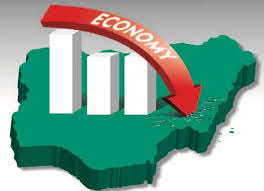The Ogoni cleanup which was greeted with high expectation has become a festering sore to many in the Niger Delta; BENJAMIN UMUTEME reports.
When the federal government announced it would clean up the Ogoniland which has been ravaged by years of accumulated degradation of its environment many in the need get Delta region were thrilled. They felt the All Progressive Congress (APC) had become responsive to the yearning of the people from the region.
But alas, five years on nothing concrete is being done to actually make the exercise meet the aspiration of the region.
The issue of the clean-up of Ogoniland has been on for several years, but it became a national issue after the United Nations Environmental Programme (UNEP) on the severity of the damage activities of oil companies have caused the area. Thus the federal government was left with no option than to agree to clean-up the area.
The UNEP report
The United Nations Environmental Programme (UNEP) released its environmental assessment report on Ogoniland in August 2011. The report commissioned by and delivered to the federal government showed that pollution from over 50 years of oil operations in the region has penetrated further and deeper than many may have thought.
The assessment has been unprecedented as the UNEP team over a 14-month period examined more than 200 locations, surveyed 122 kilometres of pipeline rights of way, reviewed more than 5,000 medical records and engaged over 23,000 people at local community meetings.
Detailed soil and groundwater contamination investigations were conducted at 69 sites, which ranged in size from 1,300 square metres (Barabeedom-K.dere, Gokana local government area to 79 hectares (Ajeokpori-Akpajo, Eleme LGA).
Altogether more than 4,000 samples were analysed, including water taken from 142 groundwater monitoring wells drilled specifically for the study and soil extracted from 780 boreholes.
For instance, in at least 10 Ogoni communities where drinking water was said to be contaminated with high levels of hydrocarbons, public health is seriously threatened, according to the assessment that was released today.
In one community, Nisisioken Ogale, in western Ogoniland, families were drinking water from wells that have been contaminated with benzene – a known carcinogen-at levels over 900 times above World Health Organisation guidelines. According to the report, the site is close to a Nigerian National Petroleum Company pipeline.
Neglect by oil coys
While the degradation may partly be due to sabotage resulting from vandalism of pipelines and oil theft, it most tines boil down to negligence by oil companies operating in the area.
There have been several calls by rights activists and groups for the federal government to prosecute Eni and Shell for unprofessional conduct in the way they have, over time, managed cases of oil spill in Nigeria.
According to Amnesty International (AI) both oil companies have deliberately refused to address pervading cases of oil spills in the region as they have been slow in responding at the right time.
The oil-rich region of Nigeria has been an ecological disaster zone, scarred by decades of spills that have killed trees and other plants.
An AI report in 2018 described the oil giants’ actions as “serious negligence.” The rights group said that oil giants were take weeks to respond to reports of spills and publishing misleading information about the cause and severity of spills, which may result in communities not receiving compensation. Its report noted that Shell had reported 1,010 spills since 2011, while Eni reported 820 since 2014.
It further said that among these 1,830 reports it found 89 “about which there are reasonable doubts surrounding the cause provided by the oil companies.”
However, clean-ups, and the associated compensation have become highly contentious, with some local communities even blocking teams’ access to spill sites, allowing the damage to worsen, in the hope of extracting a bigger pay-out.
Despite its apology to inhabitants of the Niger Delta region over its many years of human rights violations, the company has yet to fully take responsibility righting the wrongs it had done over the years.
The oil major, in years gone by, had been confronted with massive evidence of human rights violations that can only be attributed to its operations in the Niger-delta.
It is still believed among Niger-delta inhabitants that the company had a hand in the death of Ogoni environmental rights activist, Ken Saro Wiwa.
Shell acknowledges that it is responsible for large-scale oil spills, waste dumping and gas flaring. Each year, hundreds of oil spills occur, many of which are caused by corrosion of oil pipes and poor maintenance of infrastructure.
According to Shell’s vice-president, Bradford Houppe, the company did not know that it action or inaction was bringing impoverishment, conflict, abuse and deprivation to the region’s inhabitants.
He said, “Our failure to deal with these spills swiftly and the lack of effective clean-up greatly exacerbate their human rights and environmental impact. And that is wrong. It’s just really wrong.
“The destruction of livelihoods and the lack of redress have led people to steal oil and vandalise oil infrastructure in an attempt to gain compensation or clean-up contracts. Armed groups engage in large-scale theft of oil and the ransoming of oil workers.”
‘Flawed implementation’
The clean-up exercise remains hazy as many in the region fear that the purpose might not be achieved, especially with the way some of the companies that were awarded the cleanup contract were going about it.
In the meantime, many Ogoni leaders continue to question the federal government’s implementation of the UNEP report for the clean-up in Ogoniland saying it is “flawed.”
Addressing Ogoni elders in Port Harcourt last year, the chairman of the Elders Forum, Senator Bennett Birabi, said more than two years after its flag-off, the manner and process for implementation of recommendations was contrary to assurances by the federal government that the process will meet international best practices.
“Rather than commence implementation with the proposed emergency measures, we have come to observe that after each tranche of funds release by the oil companies on the clean-up, the expenditure pattern has not only been opaque, but completely out of sync with the UNEP recommendations,” he said.
For rights activist and environmentalist, Ledum Mitee, noted that the award of contracts for implementing Hydrocarbon Pollution Remediation Project (HYPREP) did not even include community stakeholders.
“You won’t imagine that one of those who got contract was asking what the direction to Ogoni is. He has not been here, he knows nothing about Ogoni. They said they spent N1 billion on communications, if this is true, then all stakeholders including the communities should be on same page, one accord, but that is not the case,” Mitee said.
For economist Friday Efih, the government should quickly mobilise the contractors that were initially pencilled down to enable them move to site. This is just as he added that the utterance of MOSOP executive was not helping the cause of the project.
Institutional, regulatory impediments
The programme manager, Defence and Security of CISLAC, Mr. Salaudeen Hashim, in his contribution, attributed the slow pace of cleanup and remedial exercise at Ogoniland to weak institutional and regulatory framework. Hashim said companies’ collusion, bad governance and corruption were factors, which needed to be addressed to record significant result from the situation in Ogoni.
He urged the government to intensify more efforts in ensuring effective institutional and regulatory framework for the region.
He enjoined the Ogoni communities to take proactive stance against theft and illegal refining. “The Ogoni community is exposed to petroleum hydrocarbons in outdoor air and drinking water, sometimes at elevated concentrations.
“Hydrocarbon contamination is found in water taken from 28 wells at 10 communities adjacent to contaminated sites; and without adequate regulation framework in tackling the menace, it will continue to multiply,” he said.



